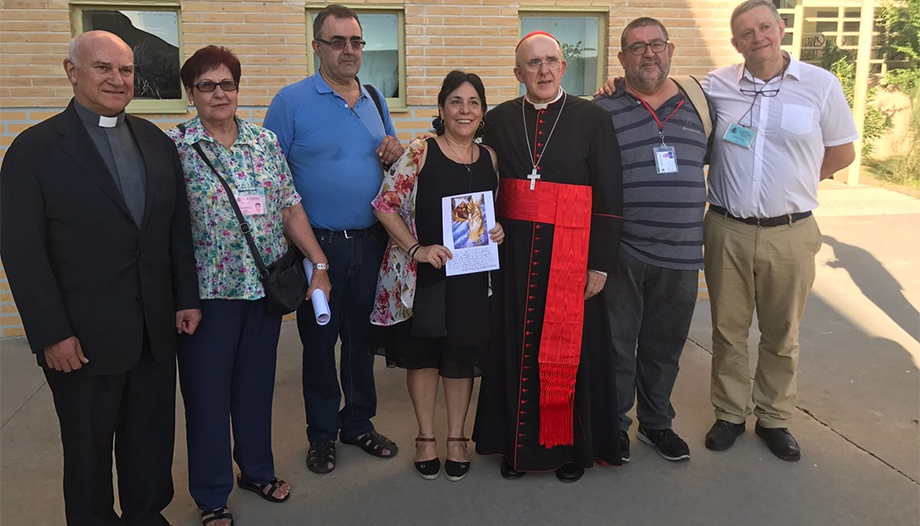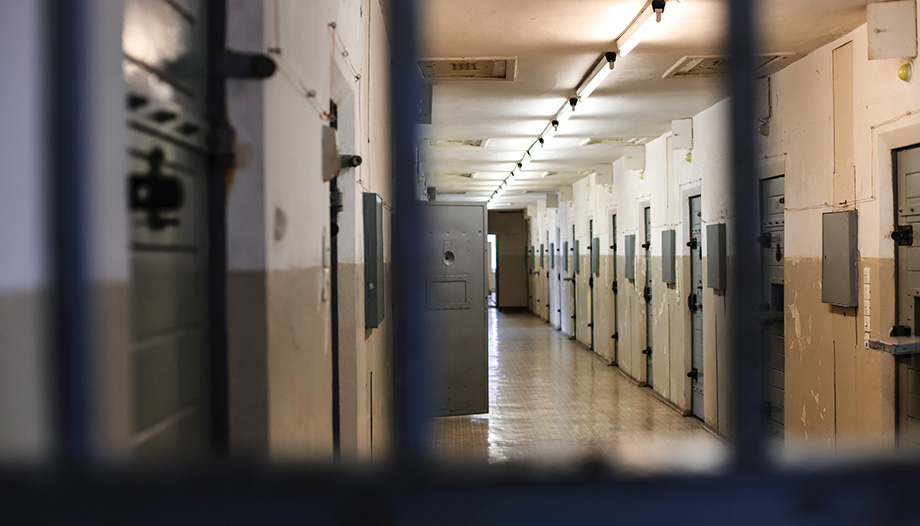"The first thing is to look at the person. It is useless to talk about God if you have not first approached the person who is suffering and having a hard time, reaching out to him, helping him, listening to him and encouraging him. Once you have approached the person, you can make that proposal of salvation and tell him that God loves him", he points out. Paulino Alonsochaplain of Soto from Real and head of the Ave Maria Dining Room Foundation.
The chaplain of the largest penitentiary center in Spain underlines how "here we have all kinds of people, men and women, who have committed specific crimes, in specific circumstances, with a specific situation. To proclaim the Good News where there is pain and suffering we have to start from this look at each one and propose the message of Christ the Savior. To remember that Jesus looks at the person, does not condemn the person and from there start a journey with him, who accompanies them from the closeness of us, who are the ones who carry this message".
Paulino does so after decades in prison, "Thanks to Father Paulino my path of reconciliation and conversion was possible" he says. Adolfoconvicted of being a "mule". This Venezuelan was arrested in Barajas carrying drugs and sentenced to six years. "Honestly, I came with a certain rejection of religion or the Church. .... At that moment, one feels abandoned, I was throwing it in God's face that knowing the need I was going through, he allowed it to happen and above all the situation of my family in Venezuela".
The change began slowly, first when Adolfo joined the prison chapel choir and, over time, "through the Mass celebrations with Father Paulino, I began to change. I was taking responsibility and realizing that I didn't have to blame God. "They helped me to open my eyes and especially the closeness, the way Fr. Paulino treated me," he says. Now Adolfo, who has obtained the third degree, helps the chaplain at the Ave Maria Dining Hall.
God looks you in the face
"In prison you live the pure Gospel," he points out. María Yela, delegate of the Prison Pastoral Ministry of the Archdiocese of MadridI always say that every prisoner is a living tabernacle. To celebrate the feast of Our Lady of Mercy is to remember how Our Lady lived through so many difficult situations, and how she accompanied and gathered the Apostles, just as today she accompanies the prisoners".
Yela describes this relationship between the Virgin and the world of prison ministry because "She knew how to incarnate Jesus with all the difficulties and dedication that this entailed. She set out to help her cousin, she gave birth to her Son in poverty and welcomed him as a gift and thus, she became a gift for us. Mary teaches us to accompany those who suffer, as she educated Jesus".
Accompanying without judging, accompanying each person with their circumstances, their past, present and future. "What they value most is that concrete people and, above all, Someone with a capital letter, do not reject them, do not judge them or look at them with evil eyes, but rather as people," Paulino emphasizes. "This is something fundamental, not only for those who are imprisoned but for everyone: that God looks us in the face, that he loves us, understands our circumstances and does not come to judge us."
The road to forgiveness is not easy, much less in an environment of lack of freedom and in which many other factors converge. However, "little by little there are those who discover that they are not going anywhere on the road of hatred and they begin the opposite path, that of forgiveness. As you are with them, they discover the value of forgiveness and reconciliation, which is not easy, especially when they have an exaggerated sentence for what they have done or are even unjustly imprisoned," says the chaplain of Soto del Real. María Yela corroborates this statement: "in prison there are many activities, etc., but there are also times with oneself, which help to a deep conversion on many occasions".

The Virgin of La Merced
The Royal and Military Order of Our Lady of Mercy and the Redemption of the Captives, was founded in 1228 by St. Peter Nolasco inspired by the Virgin Mary and under the patronage of the Virgin of Mercy for the redemption of Christian captives in the hands of Muslims. In addition to the traditional vows of the religious, the Mercedarians commit themselves with a fourth vow to liberate others who are weaker in the faith, even if it costs them their lives.
Throughout history, the Mercedarian Order has adopted various charitable and apostolic ministries according to the needs of the Church and the world. Today, Mercedarians continue these ministries according to the needs of particular churches, for example, as chaplains in many penitentiaries, through soup kitchens, care for orphans or their work with migrants.
For this reason, the feast day of Our Lady of Mercy is the day of the Prison Pastoral Care.








